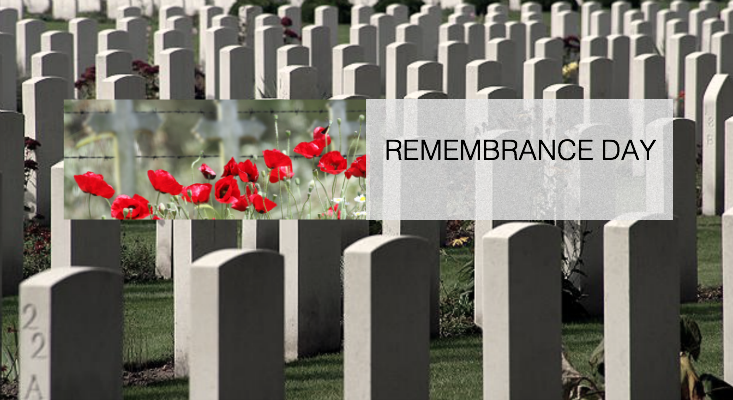Yearly on November 11 from 11/11/2015 to 11/11/2027
__________________________________________________________________________________________________________

__________________________________________________________________________________________________________
Remembrance
On the 11th hour of the 11th day of the 11th month of 1918, World War I officially ended. The tradition of Remembrance Day on November 11 began in England and has spread across the globe as a time to remember the fallen, the men and women who gave their lives in conflict.
Many Anglican churches join in the commemoration of Remembrance Day/Remembrance Sunday. We offer special prayers for those who have died in these conflicts and those who have served faithfully. We give thanks for veterans and their families in the congregation.
For some in the church, war and its terror is not a detached field of study but a personal experience. They fought themselves, and remember the fear, or perhaps they lost loved ones. Their tears on the occasion of Remembrance Sunday bear witness to the many casualties of war. Whether we’ve experienced war firsthand or not, we all should remember. And pray.
On Remembrance Sunday, small paper poppy flowers tucked into our buttonholes or lapels remind us of the flowers that bloomed across the fields of some of the worst battles in World War I.
The poem, “In Flanders Field” recalls the many who died at war in Belgium.
In Flanders fields the poppies blow
Between the crosses, row on row,
That mark our place, and in the sky,
The larks, still bravely singing, fly,
Scarce heard amid the guns below.
We are the dead; short days ago
We lived, felt dawn, saw sunset glow,
Loved and were loved, and now we lie
In Flanders fields...
Richelle Thompson, the author of Remembrance, is a regular blogger to ECF Vital Practices, where this article first appeared. Vital Practices is a project of The Episcopal Church Foundation.
Richelle is currently managing editor at Forward Movement, and has served previously on the board of Episcopal Communicators.
.................................................................
We Will Remember them!
Excerpted from the site of the William Temple Foundation
Every November there are notices like this, as well as ceremonies at village war memorials, parades of massed military bands, and the ubiquitous crimson poppy -- all to remind us of the global conflicts of the 20th Century which brought suffering to millions, and shaped the politics and society of today.
The church is a notable participant in such rituals. Undoubtedly. . . there have been significant changes in the extent and modes by which [the fallen] are honoured in both public and private realms, certainly as society has become more globalized and privatized.
At Remembrance tide the dominant narrative is of the selfless sacrifice of heroic warriors, laying down their lives in resonance with the Christian story of Calvary, so that we might live in liberty and peace. . . This interpretation is often contested from a pacifist perspective by the wearing of a white poppy, preferring to generally mark the commemoration of our experience of total warfare and to encourage a focus on peacemaking.
.................................................................
Prayer for Peace
Excerpted from Project Ploughshares
May we put our trust in the power of good to overcome evil
and the power of love to overcome hatred.
We pray for the vision to see and the faith to believe
in a world emancipated from violence,
a new world where fear shall no longer lead men to commit injustice,
nor selfishness make them bring suffering to others.
Help us to devote our whole life and thought and energy
to the task of making peace,
praying always for the inspiration and the power
to fulfill the destiny for which we and all men were created.
.................................................................
